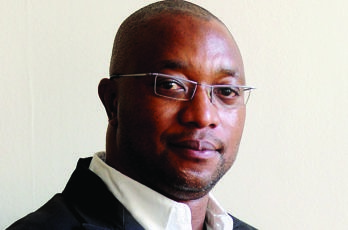
The charming leader can open doors, but many of them fail because they cannot follow through, writes Muzi Kuzwayo
A friend of mine recently bought a large company that came with many staff members and managers.
The job of finding the future leader for the company has begun.
A good leader is like a polished diamond. He or she has to have many facets and like with diamonds, there are fakes.
Too many charmers are mistaken for political leaders. Charmers open doors, but many of them fail because they cannot follow through.
It is easy to spot a hollow charmer. They like name-dropping.
As the story goes: “Nelson Mandela told me a lot of things, but the one thing I never forget is when he said to me: ‘Son, if there’s one thing I want you to remember, it is that you must never name drop.’”
When the stakes are high, take a candidate to lunch and watch how they treat the waiters.
Want to know whether they are nice to you because you have an opportunity at hand, or if they indeed are a good person?
Never judge people by how they treat their superiors, but by how they treat those of lower status.
Leaders who brag bore their followers to death. More dangerously, they take responsibility only for the good and blame others for their failures.
Different phases of the business require different types of leaders.
Sometimes an organisation may need a statesperson, especially if it is caught up in a web of uncertainty caused by disruptive innovation, legislative uncertainty and political turbulence.
A statesperson has a clear vision and is led by a moral compass as opposed to following opinion polls. This leader understands that in the long-run, principle trumps expediency.
They are able to see through the fog of uncertainty and imagine what the organisation can become, instead of being a hostage to focus groups.
A statesperson possesses an important quality — the ability to build consensus and manage the various technical people who may have conflicting views.
They do not see themselves as the saviour. They do not charge ahead. They make sure that their followers are right behind them.
Sometimes the business needs a technocrat – a person who has gone up the ranks because of nothing else but technical ability.
Such people inherently believe that technology or money is the solution to all organisational problems.
If the organisation is overstaffed, they retrench. They shut down unprofitable divisions or throw out obsolete technologies.
Technocrats have little room for dissent or endless talk shops. They are results driven.
According to Robert Putnam, professor of public policy at Harvard University, technocrats are sceptical towards politicians and political institutions, which explains why business is in constant conflict with political leaders.
They look for pragmatic solutions and will easily override ideological and even moral assessments. Technocrats can only be curbed by powerful lobby groups that put them in line.
There is a leader who is as strict as the school principal. They take a decision, communicate their expectations and give clear goals.
Achieving the goals often does not come with any acknowledgment, but failure to meet the targets is punishable.
The disciplinarian allows consequences to follow their course and will not interfere. This kind of leader lacks the sixth sense that is often necessary to navigate the choppy waters of business.
My friend is looking for someone who has the ability to simplify things.
“Simplicity,” he says, “is the ultimate measure of intelligence. It is not about ignoring complexity, but conquering it.” He is looking for someone who is intense about success.
Former football manager Sir Alex Ferguson would agree with him, as he looked for players who had intensity and commitment at the training sessions.
The third element is someone who is consistent, because a one-hit wonder is soon forgotten.




 Publications
Publications
 Partners
Partners








